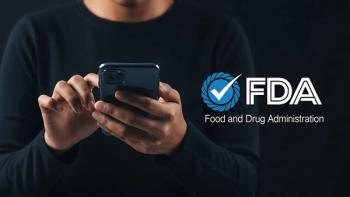
Addressing Physical and Emotional Fatigue in CLL
Transcript:
Harry P. Erba, M.D., Ph.D.: Ian, I struggle with this with my patients. They tell me they’re fatigued, yet they’re going to work, they’re doing all these things. I look at them and I say, “Gee, I feel kind of tired today, too.” What is this cancer or chemotherapy pill, or targeted pill fatigue, that we’re talking about?
Ian W. Flinn, M.D., Ph.D.: I struggle with the same questions, but it’s real. Quantitatively, there is a fatigue associated with it. I think ultimately that’s why it’s attractive that some of these studies are trying to get people off of treatment because that goes away. And it is often difficult to tease out from the underlying leukemia. We know that CLL [chronic lymphocytic leukemia] causes a lot of fatigue. It can be overwhelming fatigue in some patients, where they can’t even get out of bed. In our world that we live in these days, everyone has some degree of fatigue, but it’s definitely different and more prevalent in patients on these therapies.
Harry P. Erba, M.D., Ph.D.: Doreen, what do you hear about the fatigue?
Doreen Zetterlund: I deal quite a lot with fatigue, and I had it pretreatment. I also have it on continuing treatment. So I continue to deal with fatigue, but what I would say is improved, is the emotional fatigue that came from that watch and wait period. When will I be treated, and what will I be treated with? That worry has dissipated. I know I’m doing well. I’m responding well to treatment, and that degree of fatigue is relieved. But it is ongoing, and what choice do we have? We have to take care of our lives. We have to take care of our families and work if we can, and so you push through.
Harry P. Erba, M.D., Ph.D.: It is one of the things I discuss with my patients. It may be the pill, and we know these agents do that, but every person who’s touched by cancer is a different person after that. Is it the emotion of dealing with the cancer? It may be very similar to this chemotherapy brain that we hear about. How much of it is the drug and how much of it is our humanity and how we’re dealing with the stress of that? The science has actually had a very difficult time trying to sort that out. Lisa, what do you think? How is he doing?
Lisa Ferguson: I know that Nathan’s personality is such that he doesn’t necessarily minimize things, but I think he realizes there are people who probably have worse situations and feel worse. His personality is such that he said, “Well, yes, I’m tired but it’s not preventing me from taking care of the kids and getting them to their appointments, or going to work.” He’s somewhat minimizing the other side effects as well. He had, and sometimes still occasionally has, GI [gastrointestinal] issues associated with it. And I think he didn’t even mention the joint pain or joint fatigue that he feels; and I know he feels those, he’s just not a complainer. I think for him it wasn’t apparent to anybody that he had cancer, and it wasn’t apparent to other people that he was tired. I think that you made a good point about the emotional fatigue. Certainly with Nathan, I’ve never seen him depressed until he was diagnosed, and that was a very depressing time for us. I think finally starting treatment and moving past it and just increasing your knowledge, it does help to not have that emotional fatigue on top of your physical fatigue. Because I think that people don’t think about the toll it takes on you. I felt fatigued and I didn’t have cancer. It’s just emotionally very difficult.
Harry P. Erba, M.D., Ph.D.: Actually, as long as you brought that up, let me jump to that. Is there any support for the supporters, any support for the caregivers out there?
Lisa Ferguson: I’m not a group-joining person, but I know that there are support groups for caregivers. I know that there are groups in Louisville, Kentucky. That’s about an hour from our house, so I wasn’t necessarily interested in going all the way there for that specific one. I think you have to find what works for you. I chose to go to see a therapist one-on-one because of his diagnosis and the huge change in our lives, because we had just moved and I just had gone back to work. It caused some depression and anxiety. For me anxiety was a big problem. Yes, there are support groups, but I think it’s about finding what works for you. What worked for me was going to see a therapist to get all of this out and not burden him with it. I was burdening an objective person who could see where I was at and give me tools to work through the depression and anxiety.
Transcript Edited for Clarity




